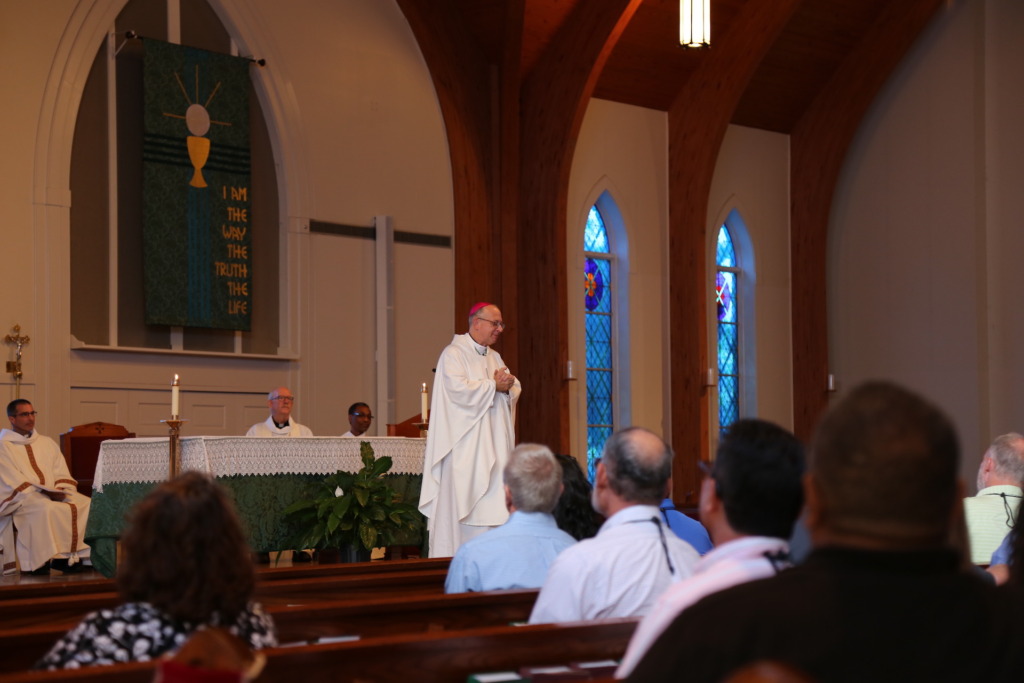Information sessions planned for fall
Every long journey begins with the first step. For those interested in becoming a deacon, that might be something to keep in mind this fall, as the diocesan Office of the Permanent Diaconate prepares to offer three information sessions on the vocation.
From application to ordination, the program takes five years to complete, but the first part of the process is inquiry.
“We ask pastors to talk with people who come forward and express interest,” said Deacon John Kren, director of the Office of the Permanent Diaconate for the diocese.
“If the pastor makes a recommendation, we invite the inquirer to participate in these three information sessions, where we present what a deacon is, what a deacon does, and what the expectations are,” he explained.
Eligible participants must be Catholic men between the ages of 30 and 60, committed to the values of justice, charity and service. They must also be a registered parishioner within the diocese for at least five years.
After the autumn information sessions, those interested can begin the application process, which includes an analysis of their involvement with the parish. Accepted applicants become “aspirants” for one year, in which they discern whether they truly have a vocation.
“We talk with aspirants about prayer, we talk about reconciliation, we offer spiritual direction,” said Deacon Kren. “This is a very important time in the process. Are you willing to offer yourself up to the service of the Church?”
Deacon Kren stresses that the most visible role of the deacon – as a participant in the liturgy – is not the primary role. Though deacons can sacramentally perform baptisms and marriages, celebrate funerals and give homilies, they also serve in different ministries within the parish.
“There’s a ministerial role as well,” said Deacon Kren. “We participate in RCIA (Rite of Christian Initiation of Adults), because we have extensive knowledge to share about the Church. There’s ecumenical work: at food banks, at food pantries.”
“We work with young couples wanting to get married. We might be teachers in schools,” he added. “Some are hospital chaplains, some are in prison ministry, some are psychologists who minister to the church. You do whatever the bishop wants you to do.”
Aspirants also take a class in philosophy, studying a curriculum that includes titans of Western thought such as Socrates, Aristotle, St. Augustine and St. Thomas Aquinas.
Once the year of discernment is complete, the aspirant is considered for candidacy. If selected, he will go through formation for four years before being ordained.
Deacon Kren suggests that eligible men who are interested speak with their pastor and seek out further information on the diocesan website. The dates have not yet been announced, but all three sessions are planned for this fall.
A longtime member of St. Mark, Virginia Beach, Deacon Kren first heard the call himself some twenty years ago. “At the time, I was involved in my parish. I was a lector, I was on the parish council,” he said. “Then I read an article in The Catholic Virginian about the diaconate, and everything came together. I decided that this is something I’m called to do.”
Interesting in learn more about the Diaconate Formation Program? Find more information here.

